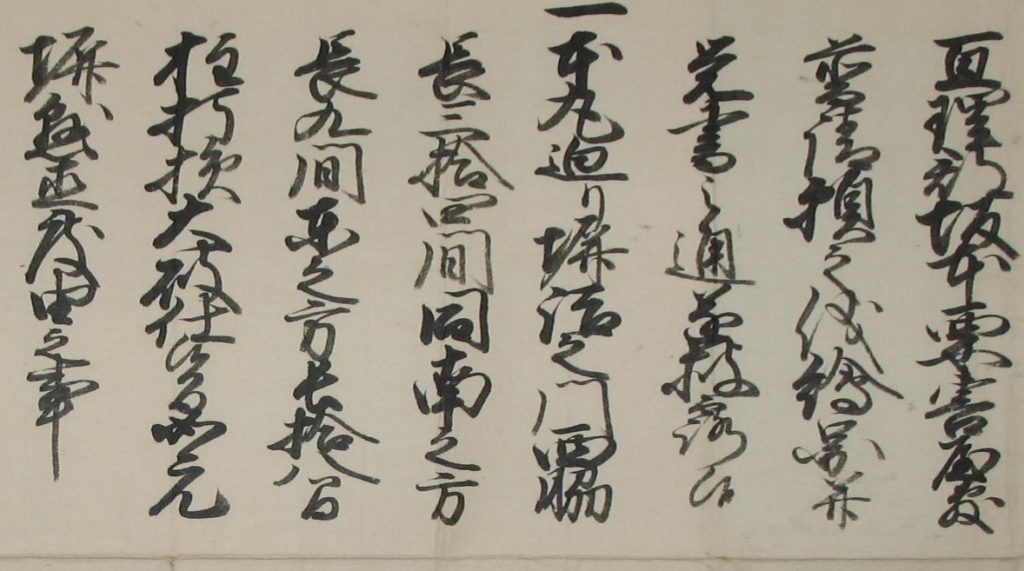Meeting of the Kawakita Classical Document Study Group
Our research division holds classical document study group meetings as requested by students. Since we hold them on Tohoku University’s Kawauchi-Kita campus, we call the group the “Kawakita Classical Document Study Group.” In the 2019 academic year, we held the meetings during third period on Thursdays during class time. Students interested in deciphering classical documents applied themselves thoroughly in about 30 lectures throughout the year. The meetings are attended by students majoring in Japanese history in the Faculty of Arts and Letters at Tohoku University, as well as graduate students majoring in the history of Japanese thought and the history of Eastern and Japanese art, and international students in the Innovative Japanese Studies Department. We believe that the participants gradually came to understand the contents of kuzushiji via ongoing, weekly learning. Moreover, we were able to confirm that many people wanted to learn about it.
The study group reads texts together with students. We especially pick documents related to the samurai of the Edo period, as requested by students, and teach them so that they can grasp the content. For example, we have used texts such as the Shinmi Records, a classical document pertaining to guards in the Tokugawa shogunate that is stored in the Tohoku University library, as well as the letters of the Ōeda family, who were officials in the Sendai domain. In modern society, we can imagine what “Edo-period samurai” may have been like, but by reading kuzushiji while thinking about the kinds of lives they actually lead or the nature of samurai’s work, students can discover fascinating facts.
Students study classical documents like the one in this photograph, but they are not immediately able to read them. At first, they learn about using a kuzushiji dictionary and expressions unique to classical documents. We give lectures to enable them to understand the content, while focusing on the basic knowledge necessary for deciphering. The period when the samurai lived ended about 200 years before the present day, but once students can read the documents, we believe they may feel more familiar with that era.
The Kawakita Classical Document Study Group wishes to continue its activities in the hope of improving students’ abilities. We welcome new participants in this space to become familiar with classical documents. (Teiji Nomoto)
Kawakita Classical Document Study Group Text: Ōeda family document (Collection of the Yamamoto Local History Museum, Miyagi Prefecture)
Ōeda submitted a document regarding the renovation of a house granted by the Sendai domain.

